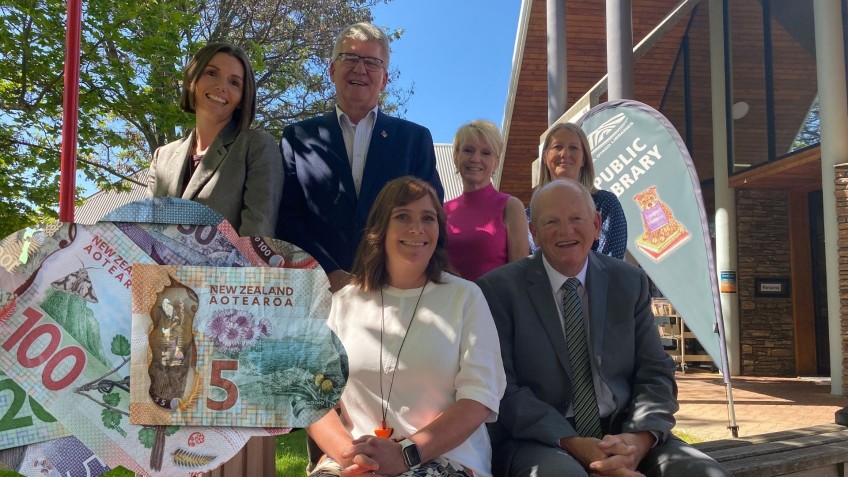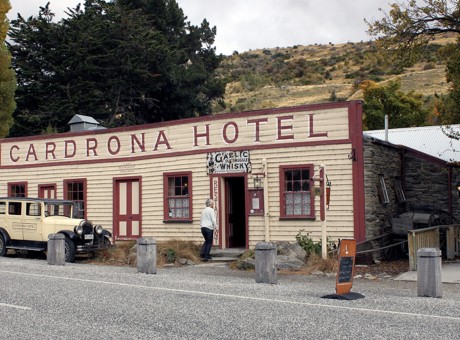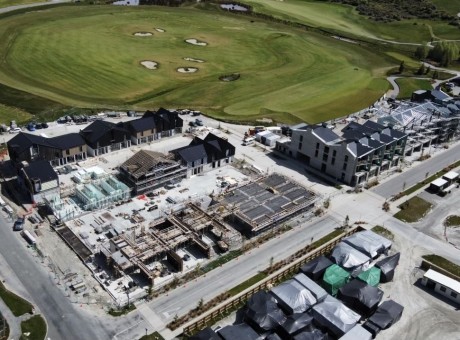Cromwell anxious at possible stealth grab of sizeable assets by Alexandra

Cromwell is anxious it is to lose control of its extensive assets to Alexandra, as a change in authorities given to community boards in the Central Otago District is mooted.
While HQ for the district council is in Alexandra, the rapidly-growing Cromwell ward has historically had plenty of clout, and a sizeable nest egg largely thanks to savvy land deals made by former local decision makers.
But exactly how much control the elected members and councillors who make up the Cromwell Community Board should directly have moving forward in relation to this intergenerational wealth is now up for discussion.
A report by Peter Kelly presented to the board at a meeting this afternoon outlines the new chief executive's proposed changes regarding delegations to community boards.
In the report he says the Cromwell Community Board, alongside others in the district, has traditionally "exercised delegations over and above" what is identified in section 52 of the Local Government Act, which pertains to the role of community boards.
"In particular, they have had an implied control over assets in their wards including land and revenues," Mr Kelly says.
The Central Otago District is not immune to the challenging, and expensive, environment other local authorities are all struggling with, as regulatory requirements become increasingly complex and costs rise, with rates hiked significantly in response.
But Mr Kelly, just months in the hot top seat at the council, appears to think he has found a way to help combat it locally.
"Recently, the long-term planning process and the challenging operating environment going forward has prompted Council to reconsider the continued appropriateness of these delegations and implied powers of the community boards, with a view to amending them to better align with the legislation," he says in the report.
"It is proposed that much of the delegated authority given to community boards be returned to Council."
It is his view, which he says is backed by the legislation, that community boards "be tasked with advocating and gaining feedback from a grassroots level within their wards...and then be able to feed this back to Council".
He says his proposed changes acknowledge "the ongoing importance of the community boards in being a strong voice for their community, while ensuring that a whole district view is taken in critical decisions that are currently facing the community".
The Cromwell Community Board is currently governing a $43-million events centre project in the town to replace the memorial hall on Melmore Terrace.
Up to $7 million of the budget will be funded by land sales authorised by the board last year.
One member of the business community spoken to by Crux says they're concerned the proposed new delegations will see a community board member basically turning up to a meeting "for a cup of tea and take their knitting along".
There is a feeling Cromwellians will be "losing what is theirs", they say.
"The reason we have such great assets is the wisdom of our predecessors in investing decisions a long time ago."
They think it is right that current Cromwell decision makers have the authority to choose to sell off assets to fund projects local to the town, like the new events centre.
"Those funds will now be available to the whole district," they say.
Alongside the Cromwell Community Board, the Vincent, Teviot Valley and Maniototo Community Boards are also in operation in the district.
The register of delegations currently available on the council's website was adopted only a matter of months ago, on October 26, 2023.
Having received and discussed the report at today's meeting, members of the Cromwell Community Board now have until February 11 - just three weeks - to provide written feedback on what is proposed, which will inform a further report scheduled to be presented to the council at its February meeting.
Councillor Sarah Browne, who sits on the community board, says those around the table today were keen to see more detail on what it is being proposed, to determine exactly what could be at stake.
"Some parts could be for the better, some parts could water down our ability to control what we, the Cromwell community, consider 'our assets'," she says.
Only four of the council's 12 elected decision makers wear a 'Cromwell hat'.
Speaking at a public meeting early last year for candidates standing in a Cromwell Community Board by-election, Central Otago District Mayor Tim Cadogan highlighted the unusual power held by the board.
“I can tell you after six years of being mayor, I’ve not met another mayor who has community boards as powerfully delegated as we do here in Central Otago," he told the audience at the meet-the-candidates event at the Cromwell Presbyterian Church.
“A lot of community boards around the country sort of get to decide what colour the posts might be painted at the rugby grounds – that might be a bit hard, but they really don’t have anything like what we’ve got.”
While technically the Cromwell board does not own any assets - it is not possible for local boards anywhere in the country to acquire, hold or dispose of land, or have a bank account - plenty on the council's books are treated as theirs, with the mayor explaining they are "held by council in a bucket labelled ‘Cromwell’, to put it very simply”.
Main image: Will Cromwell Community Board members (back row from left) Mary McConnell, Neil Gillespie, Cheryl Laws, Sarah Browne, (front from left) Anna Harrison and Bob Scott (absent Wally Sanford) be left with nothing to do but 'drink tea and knit' if fresh delegations proposed by the Central Otago District Council's new chief executive eventuate?



























